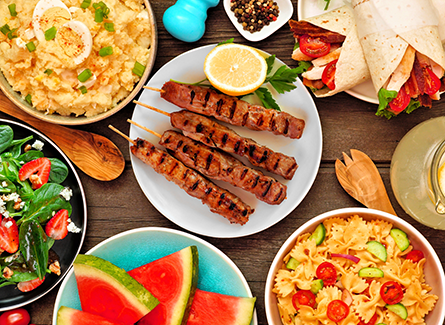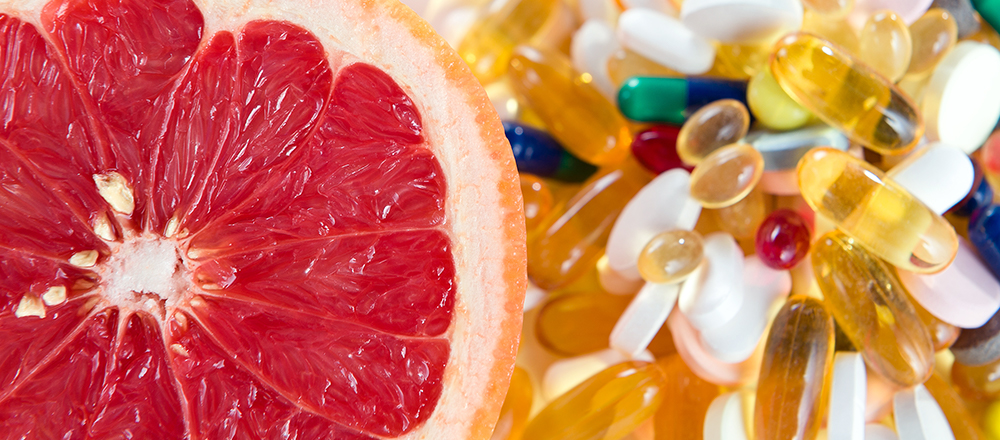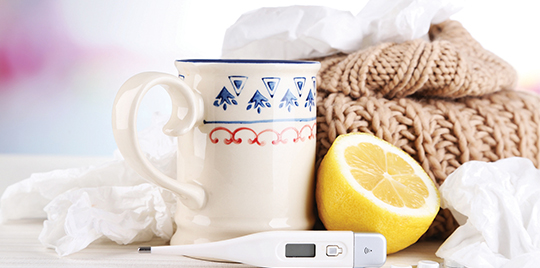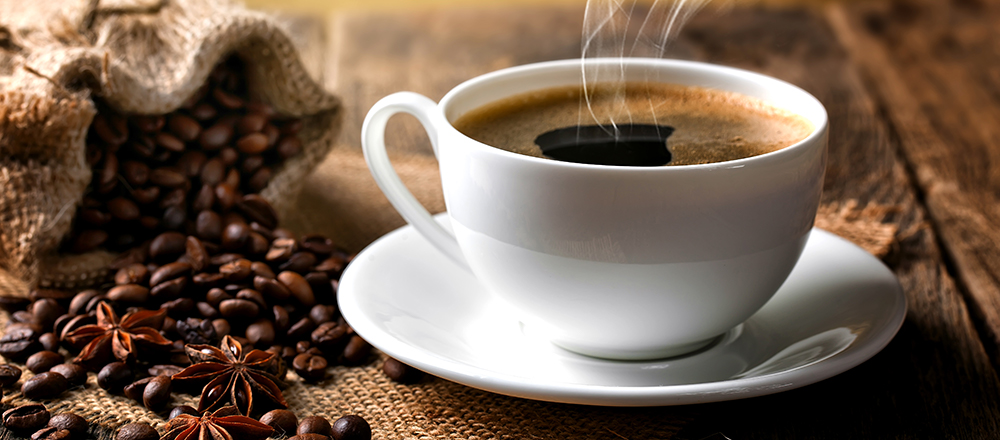
Cookouts and picnics are warm weather staples many of us enjoy. When you’re planning for your next outdoor get together, don’t forget food safety. With one in every six Americans getting food poisoning each year, practicing food safety is important. Food poisoning peaks in the summer. To avoid this uninvited guest, take extra precautions while prepping, cooking, eating and storing food this cookout season.
Keep It Clean
Before cooking, always start with clean hands, and frequently wash them before and after touching raw meat, poultry and seafood. Wash all fruits and vegetables with clean, running water before preparing or serving them. Clean all plates, surfaces and utensils that come in contact with raw meat, seafood and uncooked eggs. Pay attention to the utensils and plates used to transfer raw meat and clean them thoroughly before touching cooked foods.
If you use a grill or a griddle, clean the surface with a moist cloth or paper towel before and after cooking. You can also clean your grill with a wire bristle brush, but be careful. The wire bristles may come out of the brush and get into the food, so inspect the grill well before cooking.
Prep and Store
The way you prepare and store food also is key. Keep raw meat, poultry and seafood refrigerated at 40°F or below until you’re ready to begin cooking. If you are traveling to a cookout or picnic, keep raw meats in a separate cooler with plenty of ice.
Harmful germs can multiply quickly at room temperature so thaw food, especially raw meats, in cold water, the microwave or the refrigerator instead of on the countertop. Make sure to marinate any foods, especially meat, in the refrigerator to avoid the spread of foodborne illnesses. Do not reuse any marinade used for raw meat.
Bacteria grows most quickly between 40°F and 140°F, so keep food out of this “danger zone.” Keep hot food at 140°F or warmer until it’s ready to be served and keep cold foods below 40° or cooler until ready to be served. Don’t leave food out for more than two hours unless the temperature is 90°F or above, then put it away within an hour. Store leftovers in shallow containers for quick cooling to avoid bacteria growth.
Cook It Right
When grilling meat, poultry or seafood use a food thermometer to make sure items are cooked to the recommended safe internal temperatures. The safe internal temperature varies depending on what you’re cooking:
- Beef, lamb and pork: 145°F with a three-minute rest before consuming
- Chicken, turkey and other poultry: 165°F
- Ground meats, including burgers and hot dogs: 160°F
- Seafood, excluding shellfish: 145°F
Food safety is always important, but especially during the summer when food poisoning cases peak. Take the necessary precautions so your cookouts go off without a hitch. Visit the Centers for Disease Control and Prevention for information on the symptoms of food poisoning and up-to-date food recalls.
Explore More
Pack the Perfect Picnic
Intermittent Fasting: Friend or Foe?
3 Summer Grilling Tips to Reduce Your Cancer Risk



